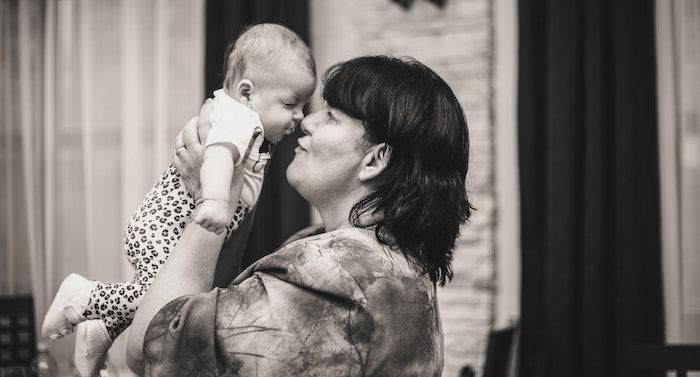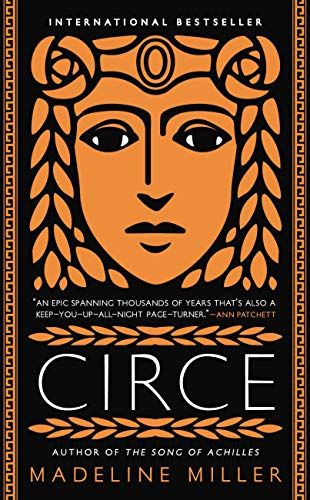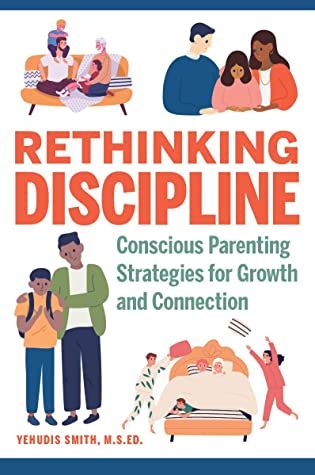
“What did I know of mortal babies?”: Six Parenthood Lessons From CIRCE
Nothing truly prepared me for parenthood until I was thrown right into it with the birth of my son. I could read parenting books and blogs, ask for advice, and draw upon years of babysitting, but only when I became a parent myself did I fully understand the realities of this new life. Parenting is hard work. I can’t put into words how rewarding and life-changing it is, but it is hard work nonetheless. We carry so much as parents, both in a physical sense (i.e. my car exploding with baby gear) and an emotional sense. When I’m feeling overwhelmed, I like commiserating with other parents. Knowing someone else out there can relate makes me feel less alone, and reading Circe helped me feel this way.
So, as a heads up, if you have not read Circe by Madeline Miller, I highly recommend it! Forewarning, I’ve got Circe spoilers ahead, so tread with caution if you’re planning to read the book.
When I first started reading Circe, I didn’t realize it included a motherhood story. I knew the premise, that a Greek goddess gets banished to live on an island that Odysseus later shows up on. However, Circe’s experiences with pregnancy and parenthood came up as a pleasant surprise for me. Not only does it add further depth to the plot and character development, but Madeline Miller writes about parenthood with eloquence and resounding honesty. As a toddler mom myself, I found Miller’s descriptions of life with a new baby and a toddler so spot on. She captures the essence that is life as a new parent, including the ups, downs, hardships, heartaches, and the tender moments too.
I most appreciated that Miller tells it like it is: the sleepless nights, the agonizing over endless baby crying, the consuming fears about a precocious child’s safety, the toddler tantrums. It’s exactly the kind of parenting commiseration I crave.
Often, reading sci-fi and fantasy allows you to escape reality, but the realities within speculative fiction can also provide comfort and life lessons too. Below, I’ve included six parenthood lessons that I especially commiserated with while reading Circe. I hope reading about these relatable moments will help you feel better too.
Lesson #1: The Baby Years Are Hard
- “Twenty diaper clothes I had cut, and believed myself wise. But what did I know of mortal babies?…Twenty cloths got me only through the first day.” (p. 242)
- “Every minute I must wash and boil and clean and scrub and put to soak. Yet how could I do that, when every minute he also needed something, food and change and sleep?” (p. 242)
- “I made a sling to carry him, so he might lie against my heart…The only thing that helped was if I walked…But if I stopped, if I tried to put him down, he would wake at once. Even when I walked without ceasing, he was soon up, screaming again. Within him was an ocean’s worth of grief, which could only be stoppered a moment, never emptied.” (p. 242)
These quotes truly capture the way the baby phase felt for me. Between latching and supply issues, my son and I had a difficult experience with breastfeeding. I met with lactation consultants, went to a breastfeeding support group at my hospital, asked my pediatrician a hundred questions. My son would want to breastfeed for an hour, yet still cried for more. So we then supplemented with formula after each nursing session. After that, he might nap, but I had to start pumping to encourage my supply. After I finished pumping and then washing those infinite breast pump and bottle parts, my son was up from his nap and ready to start the cycle all over again. I was on the merry-go-round that never stopped.
Between this feeding routine and also finishing my last semester of grad school, I almost never got a true moment’s rest in those first three months of new parenthood. Circe’s reflections really hit home for me about this.
Lesson #2: Wait, the Toddler Years Are Hard, Too
- “Now that he could sit up, reach and grasp, all the ordinary objects of my house showed their hidden teeth.” (p. 244)
- “He was older by then, too big to be slung to my chest, and the disasters he could cause had grown with him.” (p. 256)
- “A thousand years I had lived, but they did not feel so long as Telegonus’ childhood. I had prayed that he would speak early, but then I was sorry for it, since it only gave voice to his storms. No, no, no, he cried, wrenching away from me. And then a moment later, he would climb over my lap, shouting Mother until my ears ached. I am here, I told him, right here. Yet it was not close enough. I might walk with him all day, play every game he asked for, but if my attention strayed for even a moment, he would rage and wail, clinging to me.” (p. 259).
Reading these quotes makes me internally slow clap, and maybe being entrenched in toddler parenthood right now has something to do with it. This is toddler parenting right here: the endless fear of your rambunctious child getting hurt, the strain of a thousand disasters waiting to happen, and the constant demand on your attention. When I read this, I think, Circe gets it, and I feel better. If Circe can weather this storm, then so can I.
Lesson #3: You Are Stronger Than You Think
- “None of that mattered. I had said I would do anything for him, and now I would prove it and hold up the sky.” (p. 255)
- “Will it was, every hour, will. Like a spell after all, but one that I had to cast upon myself. He was a great river in flood, and I must have channels ready every moment to safely draw his torrent.” (p. 259)
A pivotal scene in Circe comes when Circe and the goddess Athena have a showdown. After realizing Athena plots to harm her son, Circe decides she will use every ounce of her craftiness to stop her. Circe says she’ll hold up the sky to keep Athena from her son, and she does. Her willpower inspires me. When life’s burdens feel heavy, I will think about how Circe collects her plants, brews her potions, and does what she says she will.
Lesson #4: It’s Ok to Make Mistakes, and We Always Have Room to Grow
- “Every night when he slept, I stood over his bed and told myself: tomorrow I will do better.” (p. 259)
In the face of challenging behavior, it can be easy to lose patience as a parent, and I take comfort in Circe’s mentality that each day presents a new opportunity to grow. Circe also doesn’t shy away from sharing the mistakes she makes as a parent, especially during the tough toddler years.
Another book I’m reading right now that I’m finding helpful for managing tricky toddler behavior is Yehudis Smith’s Rethinking Discipline: Conscious Parenting Strategies for Growth and Connection. Smith explains just how much behavior is developmentally appropriate for each age, as well as conscious parenting strategies to use during difficult behavior moments. Smith also describes the importance of understanding our child’s behavior. She labels difficult behaviors not as “misbehaviors,” but rather “mistaken behaviors” which are “driven by mistakes in judgement and ongoing learning” rather than negative intent (p. 39). This has helped me gain a more empathetic and constructive lens towards challenging behavior, which has made such a difference for me as a parent. Like Circe, I see each day as a chance for growth, and I plan to keep reading books like Smith’s to help me along the way.
Lesson #5: There Are Good Moments, Too
- “We did find some moments of peace…I would look at him and feel a love so sharp it seemed my flesh lay open.” (p. 243)
- Sometimes, we would run laughing down to the beach and he would sit snug in my lap as we watched the waves. His feet still kicked, his hands pulled restlessly at the skin of my arms. Yet his cheek lay on my chest, and I felt the swell and fall of his breath. My patience overflowed. Scream and scream, I thought. I can bear it.” (p. 259)
Despite the tears, tantrums, and stress, there is unsurpassed joy and love in parenting. As Circe attests, the good moments give us strength to face the trying times. And the good moments really do possess some magic.
Lesson #6: The Storms Will Pass
- “I fought on and he grew. That is all I can say. He calmed, and that calmed me, or maybe it was the opposite.” (p. 244)
- “One day I realized that the moon had come and gone since he had thrown himself to the earth. Another moon passed, and somewhere in those months was the last time he ever screamed. I wish I could remember when it was. No I wish rather I could have told myself when it would come, so all those hopeless days I could have looked to its horizon. His mind put forth leaves, thoughts and words that seemed to spring out of the air. Six years old, he was.” (p. 260)
And so we come to Circe’s reflections that give me the most comfort and relief. There is a calm after the storm. I appreciate that Circe notices this change in Telegonus around age 6. It helps validate my feelings that the toddler years are hard, and it gives me hope that calmer times await as my son continues growing.
A Few Final Thoughts…
Parenting is hard, and Circe tells it like it is. On top of the usual trials of parenthood, she raises Telegonus by herself on a deserted island, and this really resonated with me as a single parent in the midst of a pandemic. Reading Circe and commiserating with her about parenthood helped me feel better, and maybe a little stronger too. Like Circe, I will look forward to each new horizon as my child grows. For, as Circe would say, my son “is a sweet wonder of this world” (p. 260).
If you’d like more thought-provoking reads about parenting in the bookish world, check out these Rioter’s thoughts below.
















